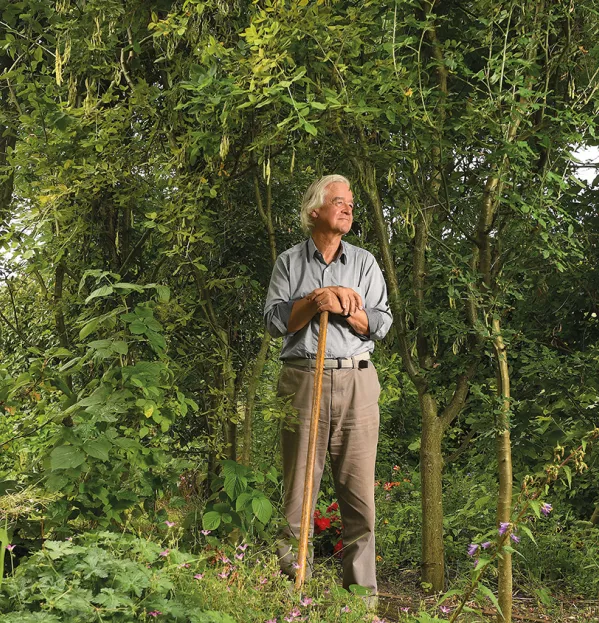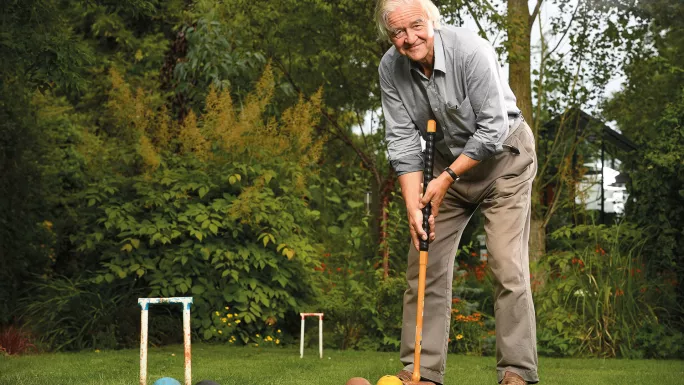Tes talks to... Peter Tymms

Assessment was supposed to be about the child and their learning. But in most schools today, according to Peter Tymms, it is seen instead as something with which to measure teachers. And that’s a problem.
“Children are overassessed because schools need to get them jumping through hoops,” says the professor of education at Durham University. “They’re aware that they’ll be judged on their league-table results or by Ofsted so they drill children through exams. It’s frequently mindless and repetitive, and it doesn’t get to the heart of the matter.
“Too often, it’s seen as an accountability exercise, but it really shouldn’t be. In fact, the accountability emphasis is the problem.”
As the former head of the Centre for Evaluation and Monitoring (he stepped down in 2011), and with a career looking at assessments as well as creating them, Tymms is well placed to comment. He thinks the true reason for assessment is not to measure outputs, but to help facilitate better inputs.
“In fundamental terms, it should be about better information for pupils, teachers, schools and parents,” he explains. “That should be the purpose.”
Which types of assessment fulfil that purpose best? Those that mould to the children, rather than pupils being expected to cope with one-size-fits-all assessments, he argues. In short, computer-adaptive assessment.
“If we’re aiming for good information about individuals, then the ideal assessment focuses on the strengths of pupils and where the next stage of learning should come from,” says Tymms. “It’s best done with a computer, starting by probing with one question and moving to something harder only if they get it right. Weaker children shouldn’t be faced with impossible questions and stronger children shouldn’t be wasting their time.”

He concedes that this is a difficult assessment to engineer for every child, and that “most of the world doesn’t do it”.
“But it should be an aspiration,” he believes. “It comes down to that different mindset. Assessment is [supposed] to help children, not to hold schools to account, and that means we need to diagnose problems and help pupils to overcome them.”
The pay-off for the extra work at setting up this type of assessment is that you begin to change the culture around it, argues Tymms. “Instead of a blame culture, you get a cooperative culture,” he reasons. “You give teachers room to ask: how do we make the education of the children better?
“From a child’s perspective, if they know what to learn next, that’s the key thing - but that doesn’t come from looking at national curriculum levels. It’s much more nuanced than that, much more detailed - and the information from computer-adaptive assessment should feed into teachers’ own knowledge. It’s the interaction between this knowledge and the results that matters.”
He adds that assessments should themselves be learning experiences: “Children can and should understand and get information from assessments. It should help them to understand themselves better, understand their progress and what their next stage is in a way that a simple grade can’t.”
How early might these benefits of assessment be felt? Tymms has been at the forefront of school-entry assessment since 1994, leading the creation of the performance indicators in primary schools (PIPS) project. While the government proposals for a baseline assessment polarise opinion, many schools have in fact been assessing children on entry using PIPS for nearly 25 years.
“The basic idea has now been tried with 3 million children around the world…and we’re looking at whole countries, not just individuals,” says Tymms.
He believes that assessment at this age is valuable, as long as it is adaptive.
“When children start school, the range is enormous so this adaptive aspect is crucial,” he says. “Some children are reading lots of books already, whereas some have language issues and can’t distinguish words from drawings…We need assessment to fit the needs of all of these children.”
Culture change ‘decades’ away
The anti-baseline argument is that an observation-based assessment is better suited to the age group. But while Tymms acknowledges the role of observation, he also points out its limitations.
“Just observing in isolation is unhelpful because children have problems that can’t be identified by observations,” he argues.
“Asking children a few questions in an adaptive way, to give teachers information about where they are and how to help them, in combination with observations - that’s the way we should be going.”
Where he is in agreement with the baseline detractors is that any assessment at this age should not be about accountability; rather, it should primarily focus on supporting learning.
“Having a baseline means you can hit the ground running,” he says. “You need to focus on key aspects of a child’s development so you can do something about any problems. But if you just take the view that the point of a baseline is to monitor progress and accountability, that completely undermines its purpose. You have to remember what it’s for. To really make things better, you need a long vision, not a short vision - one that understands children and gains that understanding early, and therefore shifts away from accountability to development of knowledge.”
While league tables and progress measures exist, the shift in the use of assessment that Tymms wants would be tricky to bring about across the entire system. Schools are starting to repurpose assessment using the research of the likes of Robert Bjork on memory to recognise the value of regular low-stakes tests, but wholesale change will be trickier, says Tymms.
“To change people’s thinking and wean them off the current system may take several decades,” he suggests.
Hurdles may also arise as, armed with better assessment information, schools might then have to make structural changes to how they teach. “Ultimately, we may even find a need to alter the curriculum in the light of good test information,” he says.
“If the curriculum isn’t focused on the learning profile of the children (and there’s reason to believe it isn’t), then we need to be interacting the good assessment data with the design of the curriculum and updating accordingly.”
Tymms is confident that change will happen eventually, though. He sees the winds of change blowing through the profession in the form of the embrace of research in the classroom; the natural conclusion to that is a better use of assessment because teachers will be better informed about what good assessment looks like.
“The context makes it hard for schools to change, but they can do it!” he insists. “We need a completely different approach and a mindset that doesn’t take notice of what the Daily Mail is saying, but favours experts and pedagogy and data.
“We are now slowly taking more notice of evidence than ever before. But there remains a long way to go.”
Kate Townshend is a freelance writer
You need a Tes subscription to read this article
Subscribe now to read this article and get other subscriber-only content:
- Unlimited access to all Tes magazine content
- Exclusive subscriber-only stories
- Award-winning email newsletters
Already a subscriber? Log in
You need a subscription to read this article
Subscribe now to read this article and get other subscriber-only content, including:
- Unlimited access to all Tes magazine content
- Exclusive subscriber-only stories
- Award-winning email newsletters